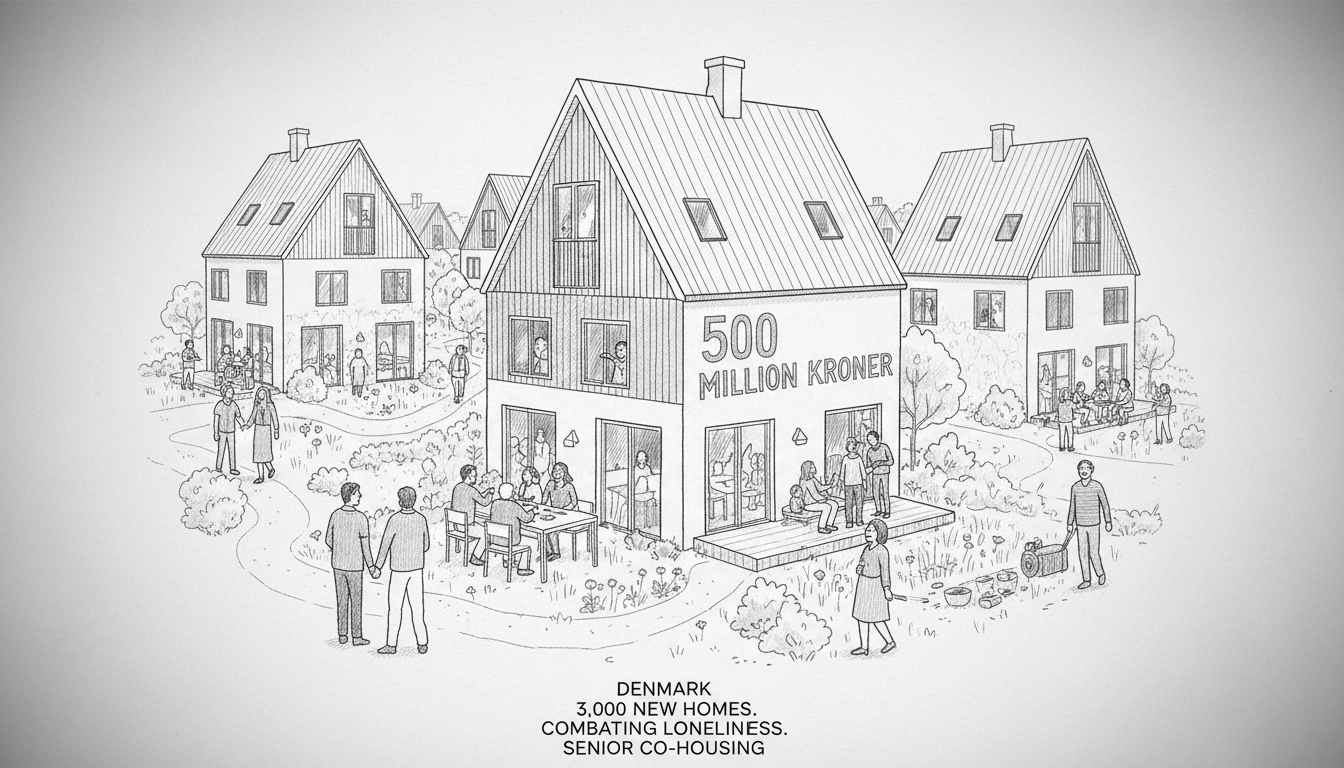The Danish government announces major funding to accelerate development of senior co-housing communities. A new proposal allocates 500 million kroner to create more shared living spaces for older citizens experiencing loneliness. The funding will distribute over four years to municipalities across Denmark.
Elderly Affairs Minister Mette Kierkgaard confirmed the initiative addresses overwhelming demand. Current waiting lists far exceed available spaces in existing senior housing communities. The investment aims to create approximately 3,000 additional homes through municipal applications.
Denmark's co-housing model provides private apartments with shared social facilities. Residents maintain independence while accessing communal activities. These include group meals, exercise classes, and social gatherings designed to build connections.
Research from philanthropic organization Realdania demonstrates clear benefits. Their studies show improved quality of life and strengthened social relationships among participants. The organization documents over 400 senior communities nationwide containing more than 12,000 homes.
Why does this matter for Denmark's aging population? The country faces demographic challenges common across Nordic nations. Longer lifespans and smaller family units increase isolation risks. Co-housing offers a middle path between independent living and institutional care.
Minister Kierkgaard identifies funding as the primary barrier for municipalities. Many local governments struggle to finance community development despite clear demand. The new state funding directly addresses this financial gap.
The political motivation appears straightforward. Reducing senior loneliness delivers multiple benefits. It potentially delays more expensive care needs while improving wellbeing. This represents practical policymaking that addresses both social and economic concerns.
What happens next? Municipalities will apply for shares of the half-billion kroner fund. Successful projects will likely emerge within the next year. The four-year distribution timeline suggests sustained commitment rather than one-time funding.
International observers might note Denmark's systematic approach to aging challenges. Unlike countries relying solely on family care or private solutions, Denmark continues developing structured community options. This reflects the Nordic welfare model's emphasis on collective solutions to social problems.
The funding comes as research increasingly links social connection to health outcomes. Loneliness among seniors correlates with higher healthcare costs and earlier need for assisted living. Co-housing communities represent a preventive approach that could yield long-term savings.
For expats considering retirement in Denmark, this signals continued development of senior-friendly infrastructure. The country maintains its reputation for innovative social solutions even as demographic pressures increase.
